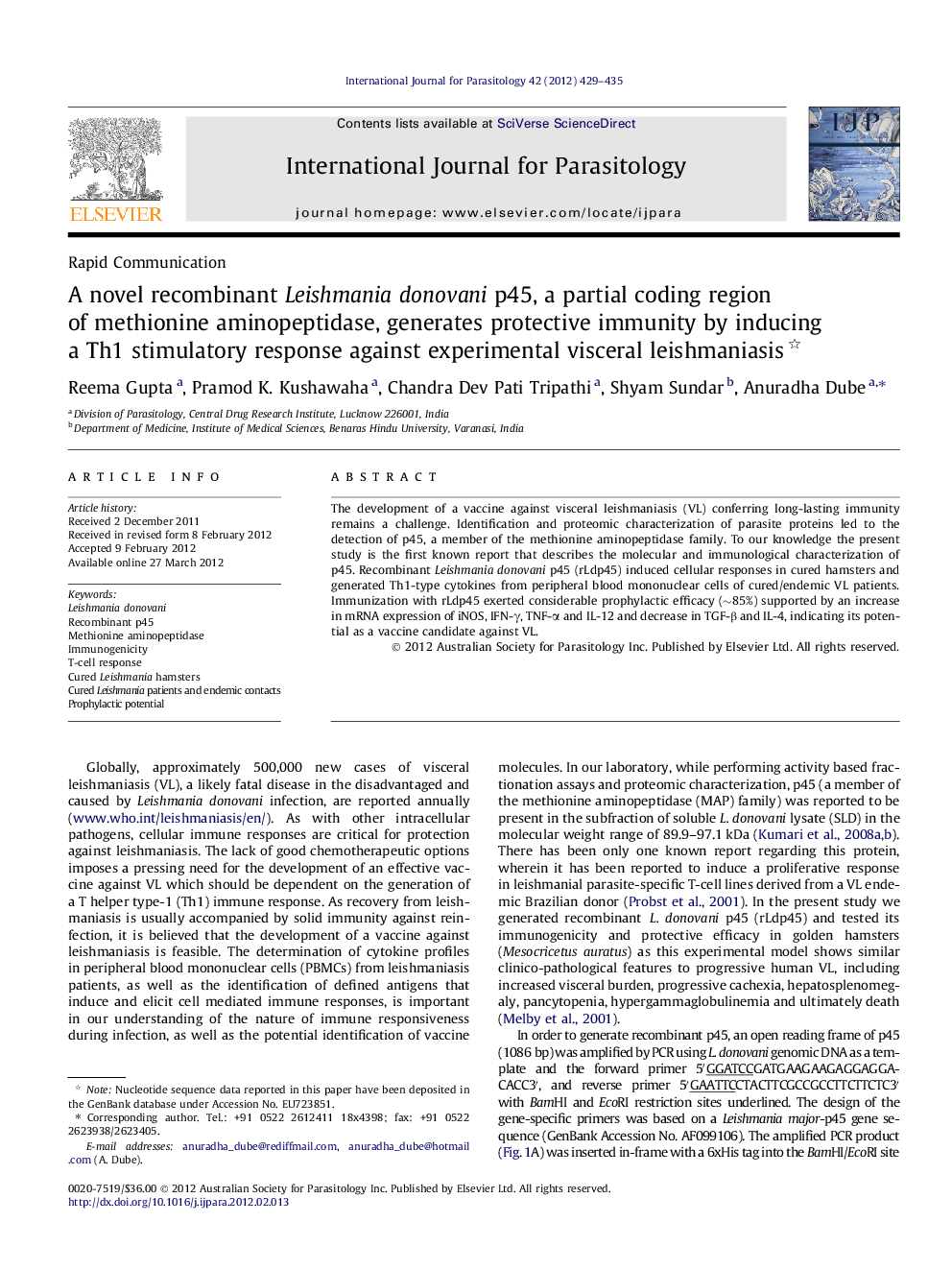| Article ID | Journal | Published Year | Pages | File Type |
|---|---|---|---|---|
| 2436141 | International Journal for Parasitology | 2012 | 7 Pages |
The development of a vaccine against visceral leishmaniasis (VL) conferring long-lasting immunity remains a challenge. Identification and proteomic characterization of parasite proteins led to the detection of p45, a member of the methionine aminopeptidase family. To our knowledge the present study is the first known report that describes the molecular and immunological characterization of p45. Recombinant Leishmania donovani p45 (rLdp45) induced cellular responses in cured hamsters and generated Th1-type cytokines from peripheral blood mononuclear cells of cured/endemic VL patients. Immunization with rLdp45 exerted considerable prophylactic efficacy (∼85%) supported by an increase in mRNA expression of iNOS, IFN-γ, TNF-α and IL-12 and decrease in TGF-β and IL-4, indicating its potential as a vaccine candidate against VL.
Graphical abstractFigure optionsDownload full-size imageDownload high-quality image (90 K)Download as PowerPoint slideHighlights► Visceral leishmaniasis (VL) is a fatal disease of the disadvantaged on the Indian subcontinent. ► There is no vaccine to date and current reliance is on chemotherapy. ► p45 is an antigen that elicits a strong T-cell response in cured hamsters/patients. ► p45 + Bacillus Calmette Guerin (BCG) reduces parasite burden to ∼85% in vaccinated and challenged hamsters. ► p45 + BCG generates a long-lasting Th1 type response in vaccinated hamsters.
